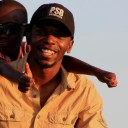‘Kupanga ni Kuchagua’ – to plan is to choose. These are the words of the late Julius Nyerere, considered father of Tanzania.
The plan for Africa is now being chosen by Africans.
As a Tanzanian social entrepreneur, I feel encouraged by the African-led economic and social developments currently taking place.
It was therefore without hesitation that I accepted the opportunity to attend the third annual African Grantmakers Network (AGN) assembly on behalf of our partner, One World Children’s Fund.
For me, this invitation highlighted the importance of meaningful collaboration. Philanthropy is not only about money, but also about a love of humanity that unites us to the causes about which we are passionate.
This year’s focus was ‘People, Policy, and Practises’. With some of Africa’s renowned and emerging change makers present, I was determined to also register my voice. For three days, leaving our differences aside, persevering through discussions on issues such as poor governance and corruption, we formed a new narrative: A changed Africa and a changed approach to philanthropy.
AGN’s approach to philanthropy is inclusive. The organizer did not leave behind the marginalized. The assembly gathered Africans from all walks of life, from corporate CEOs to Masai pastoralists. Both had equal and valued contributions.
Global philanthropists must take heed. I am convinced that embedding marginalized people and critical thinking into the discussion agenda is an absolute must in the 21st century. It is a game changer, and will see us take huge strides in African development.
The solutions to Africa’s problems are within our continent. African generosity is embedded in our history. Take a look at umoja, harambee, ujamaa and ubuntu – all which stress communities and families united in social change.
Indeed, we are challenged in building democracy, and by natural calamities, but we are not alone and we should not lose our focus. We encourage philanthropists from across the globe to join us and invest in African-led community development and philanthropy.
Food aid is not the answer. Orphanages are not the answer. There is no saviour for Africa needed. This old fashioned philanthropic approach will only perpetuate the north in its dominant saviour role.
Building on the foundation set at this progressive and inspiring assembly, I hope that as African philanthropy develops and grows, the entire global philanthropic sector is influenced and changed. I think African philanthropy can lead efforts in grantmaking that are:
- defined by the communities served so that philanthropic efforts are sustainable, regionally specific and relevant, and deliver the greatest impact
- committed to long-term partnerships that build the capacity of community-based organizations
- united through collaborations between grassroots leaders, intermediary funders and institutional funders.
Already we are seeing the impact of an African approach to grantmaking. Communities are empowered to voice their desires and needs. In my hometown of Moshi, we are working with One World and community leaders to develop a Youth Village to provide opportunities for youth in and around Moshi.
It is now far easier to highlight the African narrative and share the most pressing needs of children in Moshi, Tanzania and the surrounding communities directly to One World – through social media, video, virtual meetings, in-person site visits, phone and text.
Grantmakers must leverage this abundance of communication and use it to listen to communities and promote their narrative. Furthermore, One World is able to share knowledge and information with other funders and grantmakers across their networks.
This horizontal model, as opposed to a vertical top-down grant-making approach, builds trust and meaningful partnerships that see philanthropy moving beyond a transfer of money between grantor and grantee. It sees grantmaking moving away from short-term project-based funding to a more long-term, open approach that is focused on boosting equality.
With the Ford Foundation in the USA recently shifting to this approach, and African Philanthropy naturally gravitating towards this model, I hope that this will be the new standard in grantmaking in our future.
I thank AGN for showing that the aid package designed for Africans without involving them in decision-making is coming to an end. I thank AGN for highlighting a hopeful alternative that is built on respectful traditions of African generosity.
This changing Africa is a team sport and we invite collaborators to join the game.
Sadock Johnson is the founder of Foot2Afrika and Safari Guide Experts.






Comments (0)